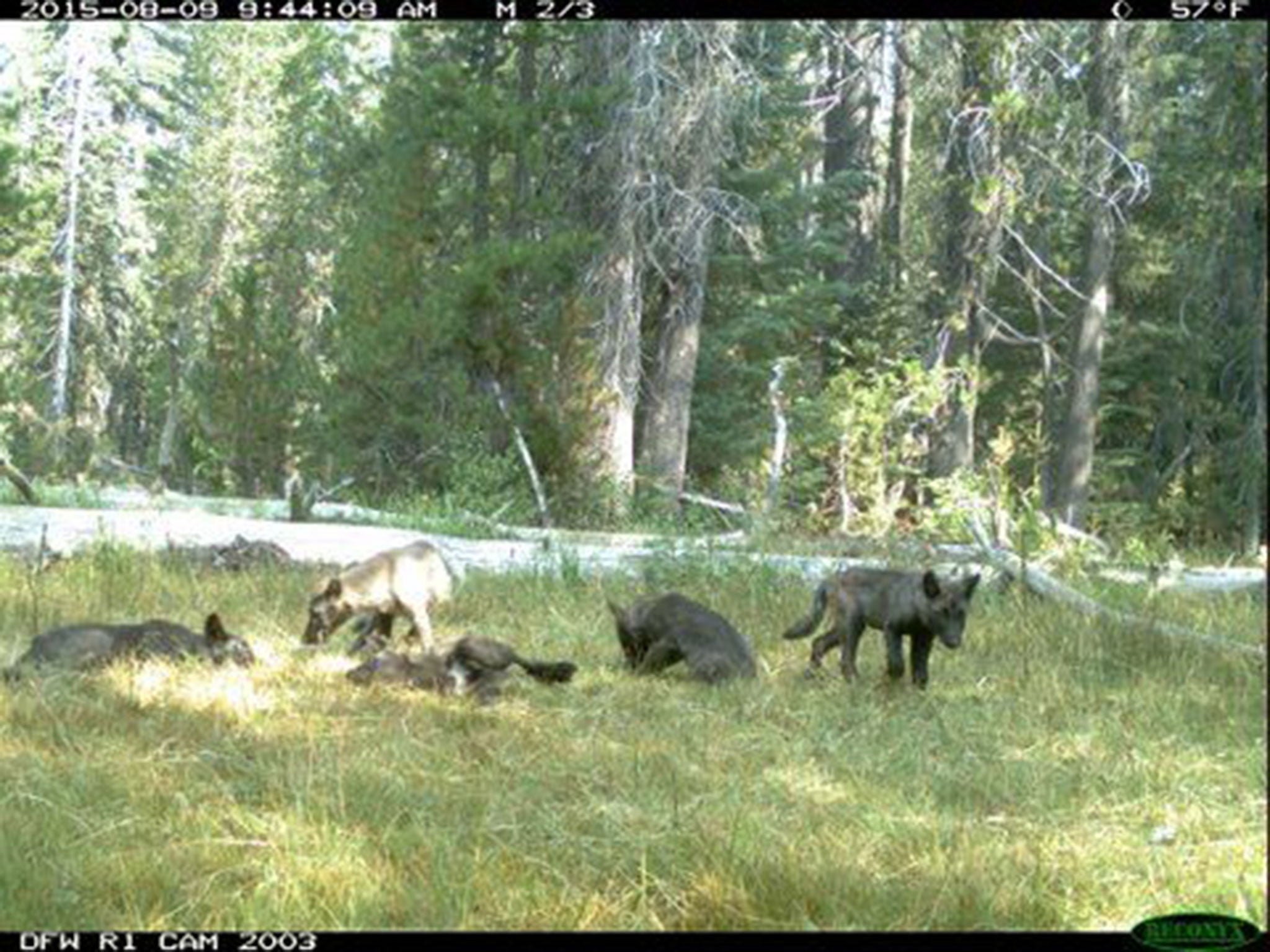First wolf pack found in California in nearly a century
Fears hunters may kill newly discovered canine group

Your support helps us to tell the story
From reproductive rights to climate change to Big Tech, The Independent is on the ground when the story is developing. Whether it's investigating the financials of Elon Musk's pro-Trump PAC or producing our latest documentary, 'The A Word', which shines a light on the American women fighting for reproductive rights, we know how important it is to parse out the facts from the messaging.
At such a critical moment in US history, we need reporters on the ground. Your donation allows us to keep sending journalists to speak to both sides of the story.
The Independent is trusted by Americans across the entire political spectrum. And unlike many other quality news outlets, we choose not to lock Americans out of our reporting and analysis with paywalls. We believe quality journalism should be available to everyone, paid for by those who can afford it.
Your support makes all the difference.A wolf pack has been spotted in California for the first time in nearly a century.
Two adults and five pups have been confirmed in southeastern Siskiyou County. Local ranchers tending to their herds told authorities they had spotted the animals.
State and federal authorities subsequently confirmed the sightings after a remote camera captured photos of the pack.
The state’s grey wolf population became extinct in 1924. They were named the Shasta pack, after the nearby Mount Shasta.
Karen Kovacs, from the California Department of Fish and Wildlife, said she was stunned by the news of the wolves’ return. She believes they have most likely migrated from Oregon’s north-eastern corner.
It is hoped DNA tests might be able to give a more accurate understanding of the animals’ backgrounds.
The canines are protected by federal and state endangered species legislation but Amaroq Weiss, from the Centre for Biological Diversity, said local conservationists are concerned the wolves could still fall victim to hunters as hunting season gets underway in the area.
With additional reporting by AP
Join our commenting forum
Join thought-provoking conversations, follow other Independent readers and see their replies
Comments